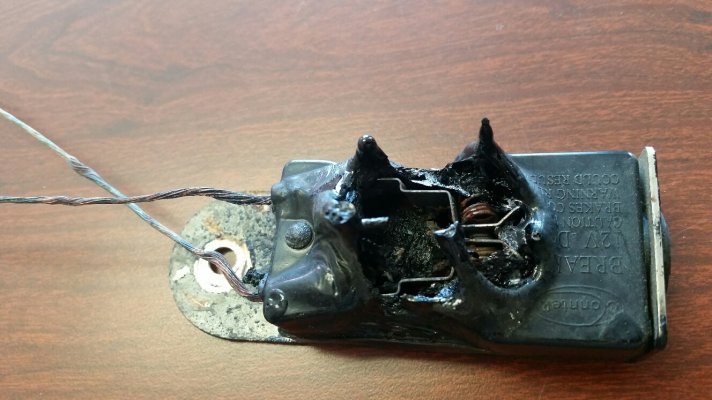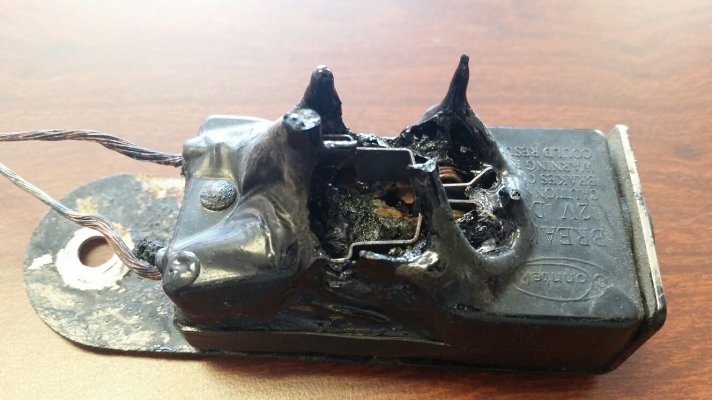Scott 3
Well-known member
- Joined
- Jan 17, 2016
- Posts
- 694
The cable to my break-away switch has always been a bit long. The cable droopped underneath my nose jack while I was disconnecting in the dark. I noticed that my TT was not decoupling as easy as I expected. I ran the TT up and down and it decoupled. I noticed that my cable broke. I pulled the plastic plug for the switch out so I could bend the switch back up. I left the plug out figuring that I could inspect it in the daylight.
The break-away switch completely melted and some of the brake wiring burned. I just about had a fire and didn't know while it was happening.
I spent a lot of time over the past two days replacing wires, connectors, etc. I hooked up to the TV and the brake controller shows everything is working.
New TT owners should be warned about break-away switches and their limited duty cycle. In the course of troubleshooting I came across similar stories. This seemingly innocuous switch can be dangerous to any trailer owner who doesn't realize what can happen if a break-away switch is left engaged too long.
The break-away switch completely melted and some of the brake wiring burned. I just about had a fire and didn't know while it was happening.
I spent a lot of time over the past two days replacing wires, connectors, etc. I hooked up to the TV and the brake controller shows everything is working.
New TT owners should be warned about break-away switches and their limited duty cycle. In the course of troubleshooting I came across similar stories. This seemingly innocuous switch can be dangerous to any trailer owner who doesn't realize what can happen if a break-away switch is left engaged too long.


